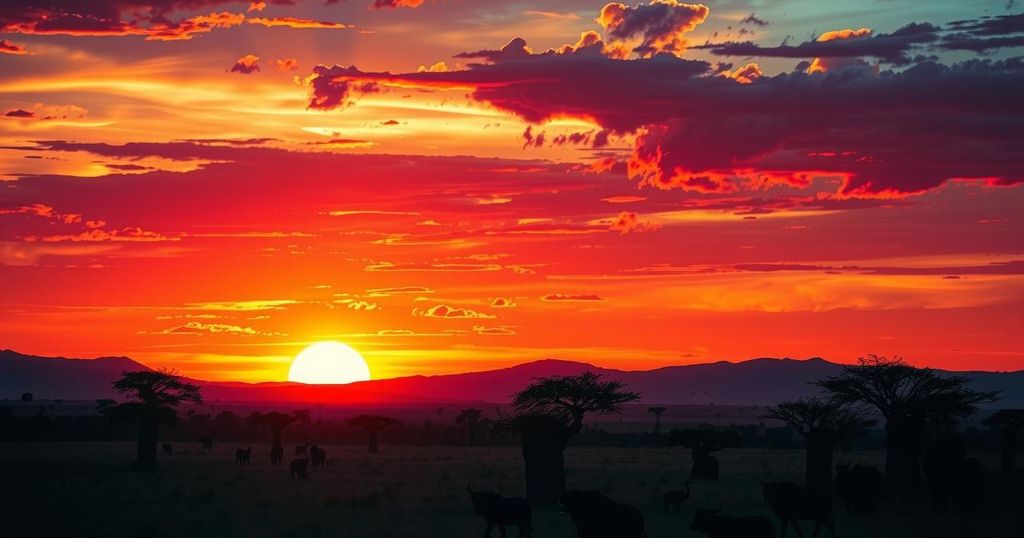Recent tensions in Zimbabwe’s Zanu-PF party highlight a succession struggle against President Mnangagwa, with growing criticism notably from war veteran Blessed Geza. Amid claims of corruption and aspirations for a third term, public interest in political mobilization appears low. Economic challenges deepen the crisis, indicating a complex political future leading up to 2028 elections.
In Zimbabwe, a recent display of military vehicles in Harare raised concerns of a potential coup. Government spokesperson Nick Mangwana quickly assured citizens that the vehicles were part of a scheduled military exercise. However, this incident highlighted the growing unrest within the ruling Zanu-PF party toward President Emmerson Mnangagwa, who has faced increasing calls for his resignation.
Criticism towards President Mnangagwa, who has held office since 2017, intensified following accusations from within his own party. Notably, war veteran Blessed Geza, also known as “Bombshell,” accused the president of corruption and prioritizing his family over the nation. Geza’s remarks have created a stir within Zanu-PF, leading to his temporary concealment from authorities due to threats of legal action.
The internal strife within Zanu-PF centers on Mnangagwa’s ambitions for extending his rule beyond the constitutional two-term limit. Supporters began promoting the narrative of his leading role in the “Agenda 2030” development plan, suggesting he must remain in power to see it through. This sparked further tensions during a recent Zanu-PF conference where motions were proposed to extend his term.
The influential Catholic Bishops Conference of Zimbabwe criticized the focus on the 2030 agenda, emphasizing the pressing issues such as economic closures and rampant unemployment. Presidential spokesperson George Charamba dismissed the bishops’ concerns, demonstrating the administration’s desire to quell dissenting voices amid rising tensions.
Despite Geza’s outcries, political analyst Takura Zhangazha suggests the population is largely disinterested in the internal conflicts of Zanu-PF. He argues that citizens are disillusioned after the 2017 coup and unlikely to mobilize for further demonstrations. Additionally, divisions among political factions, including the opposition, further complicate the sociopolitical landscape.
Geza’s previous endorsements for Vice-President Constantine Chiwenga reflect schisms within the veteran community, complicating unified opposition against Mnangagwa. Furthermore, political analyst Alexander Rusero emphasizes the internal motivations driving Geza’s statements rather than genuine concern for public welfare, as war veterans seek to retain influence over state resources.
Amidst deteriorating economic conditions, opposition leader Jameson Timba underscores the challenges facing voters, including rising hunger and supermarket closures. He emphasizes the urgent need for a reevaluation of political mandates through early elections—although such a notion remains unlikely.
As the debate over succession and future governance in Zimbabwe persists, Bombshell’s situation remains precarious. Geza remains hidden while the country navigates through its political and economic turmoil, indicating that the question of succession will continue to evolve as the political landscape shifts.
The ongoing succession discourse within Zimbabwe reveals significant tensions within the Zanu-PF party as President Mnangagwa faces internal criticism and calls for resignation. While figures like Blessed Geza have attempted to rally support against the president, public interest in political mobilization appears to wane. Economic challenges further complicate the political atmosphere, casting doubt on the prospect of urgent reform or changes in leadership. As the situation develops, it is clear that the discussions around succession will shape the political landscape for years to come.
Original Source: www.bbc.com




